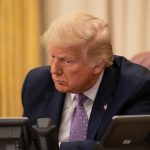Senator Marco Rubio recently shed light on the King Kong-sized media bias that has been making waves since former President Donald Trump made comments about Liz Cheney. Rubio took the mainstream media to task on CBS News’s “Face the Nation,” showing viewers just how far journalists will go to twist words and manufacture outrage.
This controversy ignited after Trump suggested that Cheney should experience the realities of war firsthand rather than sitting comfortably in a Washington office. Naturally, the media pounced like a cat on a laser dot, interpreting this as a “threat.” When pressed by CBS host Margaret Brennan, Rubio defended Trump, asserting that he speaks with the candor of someone unchained from establishment politics after 30 years of inside-the-beltway drudgery.
Rubio says media bias worse than ever after Trump’s Cheney comment fallout https://t.co/eMl2MOq4S7
— Washington Examiner (@dcexaminer) November 4, 2024
Brennan attempted to steer the conversation into dangerous territory, suggesting Trump’s comments were akin to issuing a direct threat. Rubio was quick to counter, pointing out that the media had twisted Trump’s words beyond recognition. Presenting a fair interpretation of the former president’s comments, he noted that suggesting Cheney should stand in the line of fire wasn’t a promotion to combat—just a reminder of the hypocrisy of those who beat the war drums from the safety of cushy government chairs.
As the argument heated up, Rubio emphasized a critical point: Trump’s remarks weren’t unprecedented. They highlighted an age-old criticism that the war hawks in Washington seem perfectly willing to send others to do the dirty work while avoiding the battlefield themselves. Chaney and her allies may view Trump’s comments as a threat, but Rubio suggested that this narrative is simply fodder for a media machine eager to mischaracterize anything associated with the 45th president.
Rubio’s comments hinted at a troubling trend that extends beyond this incident—one in which the media exhibits egregious bias and a shocking disregard for context. He argued that there appears to be a coordinated effort among various outlets to exaggerate or flat-out lie about Trump’s statements, especially in the recently explosive political climate. Readers could almost hear the echo of a collective gasp in the media as they scrambled to amplify outrage over what they framed as threats cloaked in political discourse.
Meanwhile, Liz Cheney has painted herself as the canary in the coal mine for political dissent. In a post that would make any Hollywood scriptwriter blush, she likened Trump’s comments to the tactics of dictators determined to silence their critics, sharply showcasing her ability to turn up the melodrama to eleven. While she continues to ride the wave of liberal support, her claims have attracted a cadre of progressive thinkers—those who seemingly believe that a little hyperbole is the price for a good headline against Trump.
With all this chaos unfolding around her, Cheney still manages to fan the flames of her own political martyrdom, insisting that freedom must be saved from Trump’s tyranny (despite his very clear comments about her). The mainstream media’s excited silence about her apparent departure from rational discourse might be laughable if it weren’t so predictable. It’s almost like they’ve turned objective journalism into a game of telephone, where the final message has little resemblance to the original dialogue.




